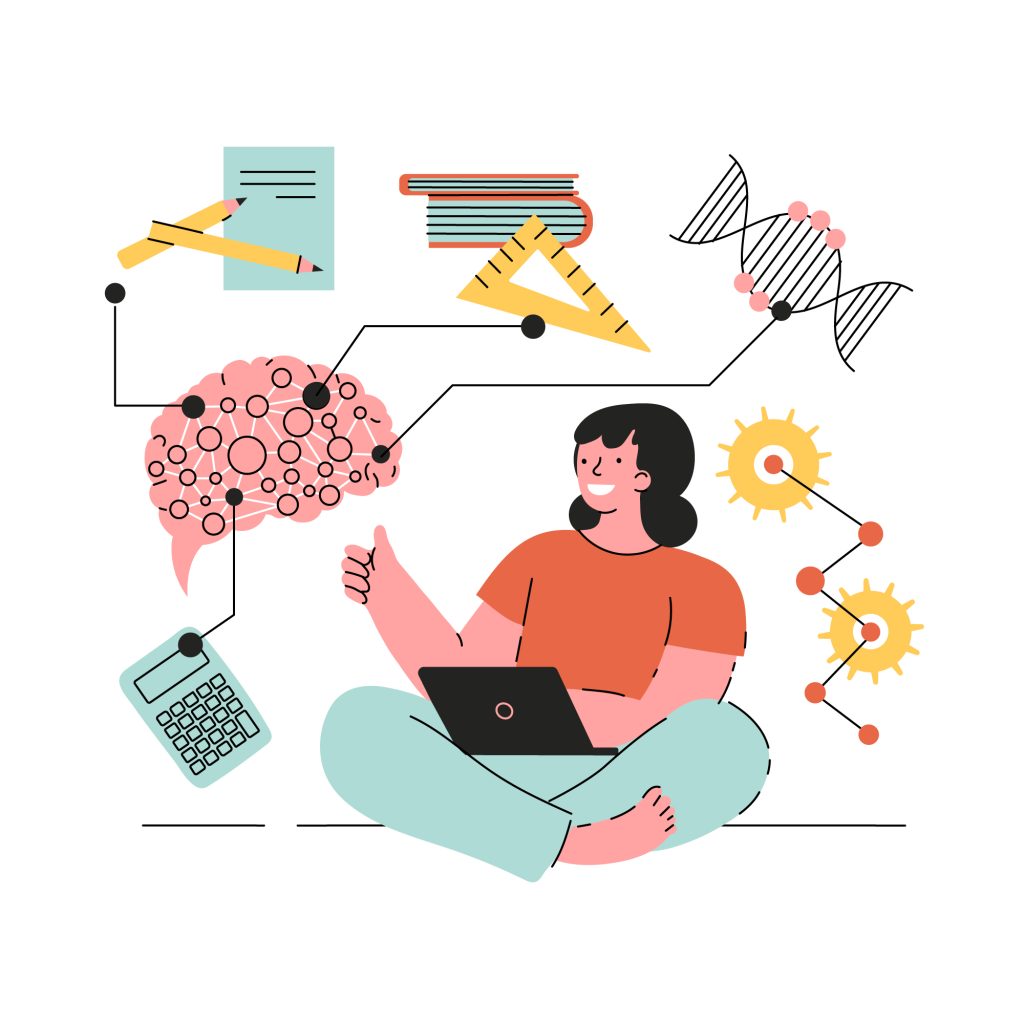In our hyper-connected lifestyle, juggling texts, emails, TikToks, and Teams meetings feels like survival. But what if that very habit is damaging your brain? The cognitive cost of constant multitasking is no longer just a theory—it’s a neurological threat backed by science. If you’ve ever ended a day feeling mentally exhausted but oddly unaccomplished, this article is for you.

Why Your Brain Was Never Meant to Multitask
Contrary to the myth, humans aren’t wired to do multiple cognitive tasks at once. The prefrontal cortex, the brain’s decision-making hub, handles one demanding task at a time. When we “multitask,” we’re actually switch-tasking—rapidly shifting attention between tasks, which increases error rates and slows down productivity (Rosen, Lim & Carrier 2013).
In one Stanford University study, heavy multitaskers performed worse on tests of memory and attention than their low-multitasking peers. Shockingly, they were also more easily distracted by irrelevant stimuli—suggesting a long-term erosion of attention (Ophir, Nass & Wagner 2009).
The Attention Residue Effect: A Hidden Productivity Killer
Even after you switch tasks, part of your brain remains stuck on the previous one—a phenomenon called attention residue. This lingering distraction lowers the quality of your next task and drains your mental energy. Think of it as a mental hangover that accumulates with every “quick check” of Instagram or Slack notification.
According to the American Psychological Association, task-switching can cut productivity by up to 40% (APA 2020). So if you’re flipping between projects every few minutes, you’re working more hours for worse results.
Your Brain on Multitasking: Anxiety, Fatigue, and Memory Fog
Neurologically, multitasking activates the brain’s stress circuitry. Cortisol, your stress hormone, surges with each switch. Over time, this elevates anxiety levels, reduces memory function, and even contributes to sleep disruption.
Functional MRI scans reveal that multitasking shrinks the brain’s gray matter—especially in the anterior cingulate cortex, which controls emotional regulation and decision-making (Loh & Kanai 2014). Translation? You become more impulsive and less emotionally resilient.
The Cost to Creativity: You Can’t Be Innovative and Distracted
Creativity requires sustained focus—something that’s impossible with constant digital interruptions. The “default mode network” of the brain, responsible for imagination and ideation, only activates during periods of quiet focus. When you’re bouncing between screens and thoughts, your brain never enters this critical state.
If you’re a designer, writer, strategist, or entrepreneur, this is terrifying news. Multitasking isn’t just burning your energy—it’s killing your ideas before they’re born.
Multitasking Is Changing Your Brain—And Not in a Good Way
Studies from the University of Sussex show that high media multitasking is correlated with reduced brain density in the anterior cingulate cortex. This isn’t just about attention—it’s about structural brain damage caused by years of constant context-switching (Loh & Kanai 2014).
Over time, this leads to:
-
Shorter attention span
-
Increased impulsiveness
-
Decreased emotional control
-
Poor decision-making under pressure
5 Real-World Strategies to Reclaim Your Focus
The good news? Your brain has plasticity. You can reverse some of the damage with focused behavioral changes.
1. Time Block Your Tasks
Use 60–90 minute uninterrupted blocks for deep work. Shut off notifications and treat that time as sacred.
2. Practice the Pomodoro Technique
Work for 25 minutes, break for 5. It builds discipline and helps you resist the urge to context switch.
3. Monotask on Purpose
List one priority task per day. Complete it without opening new tabs or checking your phone. Your brain will thank you.
4. Digital Declutter Weekly
Delete unused apps. Unfollow noise. Your digital diet directly impacts your mental health.
5. Mindfulness Isn’t Just Hype
10 minutes of daily meditation reduces stress, enhances focus, and reconditions your brain away from multitasking addictions (Zeidan et al. 2010).
Conclusion
In a society obsessed with productivity hacks and hustle culture, the biggest breakthrough might be… doing one thing at a time. The cognitive cost of constant multitasking isn’t just wasted time—it’s rewiring your brain for mediocrity.
If you want better mental clarity, sharper decision-making, and more meaningful output, it’s time to quit the multitasking myth. Train your brain to focus—and reap the rewards for a lifetime.
Reference
- Rosen, Lim, Carrier (2011) – An Empirical Examination of the Educational Impact of Text Message–Induced Task Switching in the Classroom: PDF via ResearchGate: https://www.researchgate.net
- Ophir, Nass & Wagner (2009) – Cognitive Control in Media Multitaskers (PNAS): Official DOI link: https://www.pnas.org
- Loh & Kanai (2014) – Higher Media Multi‑Tasking Activity Is Associated with Smaller Gray‑Matter Density in the Anterior Cingulate Cortex (PLOS ONE). Full article DOI link: https://doi.org









